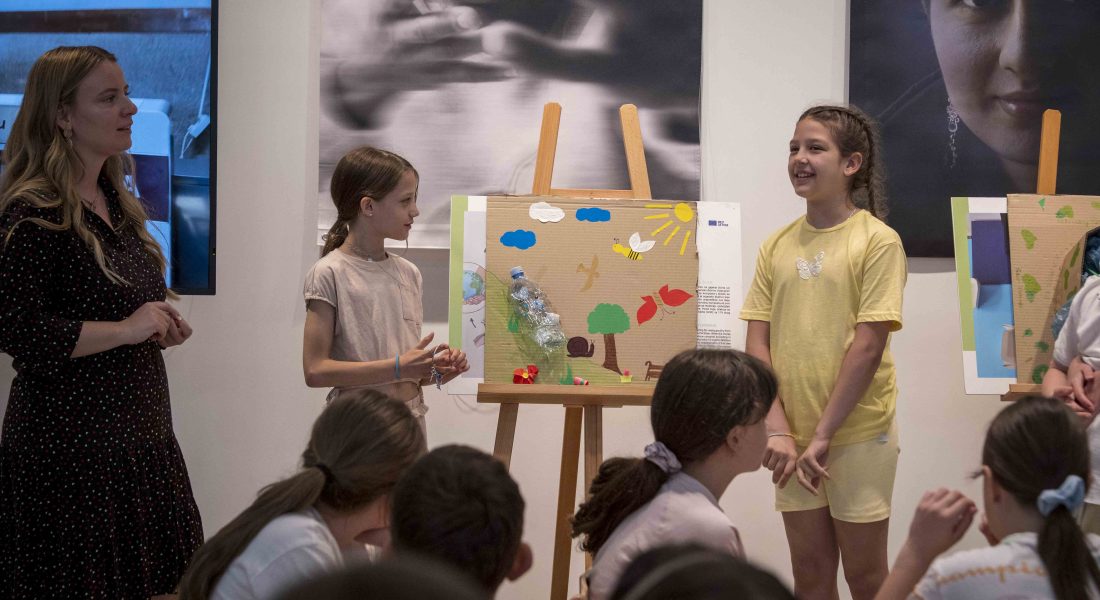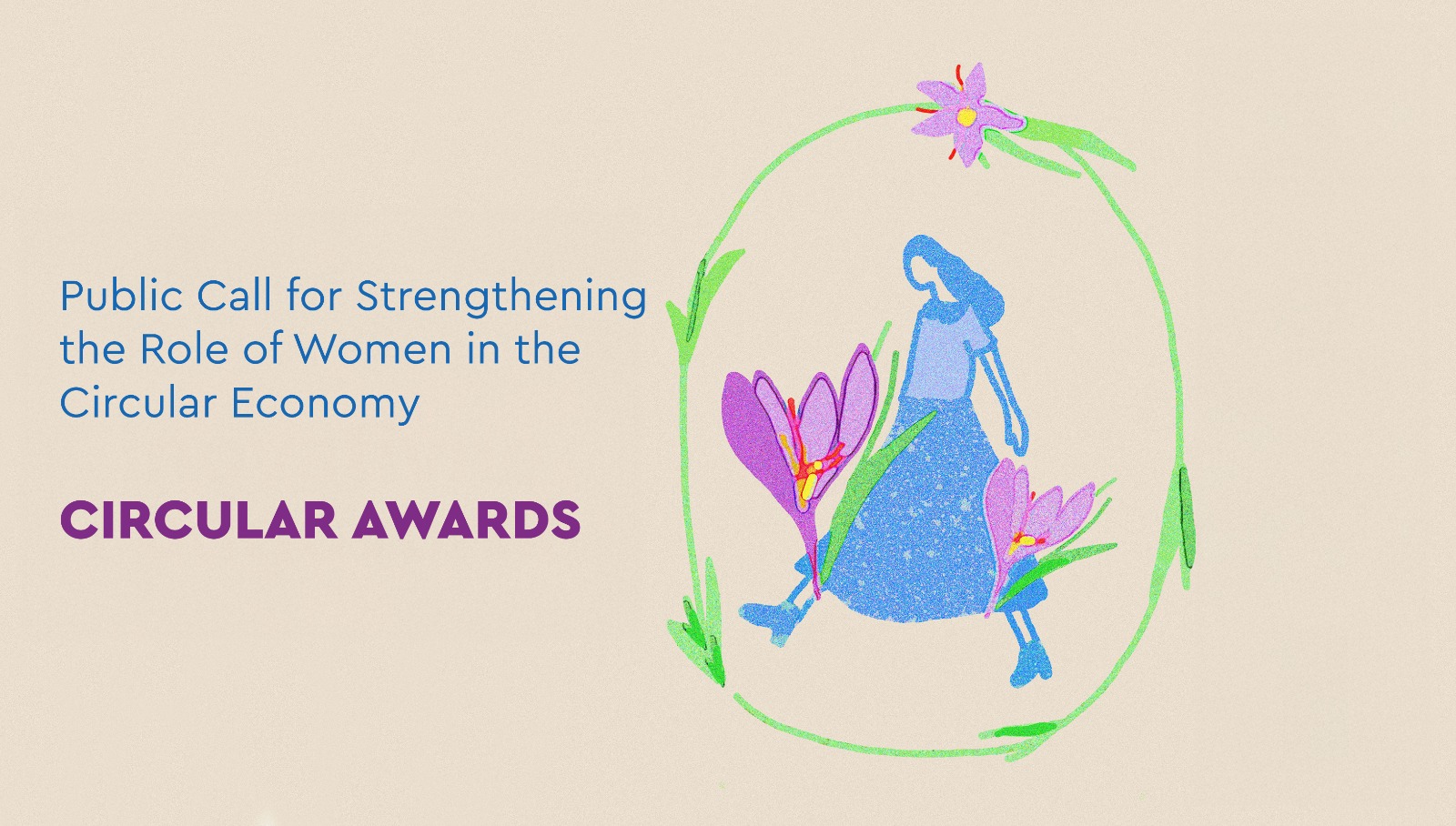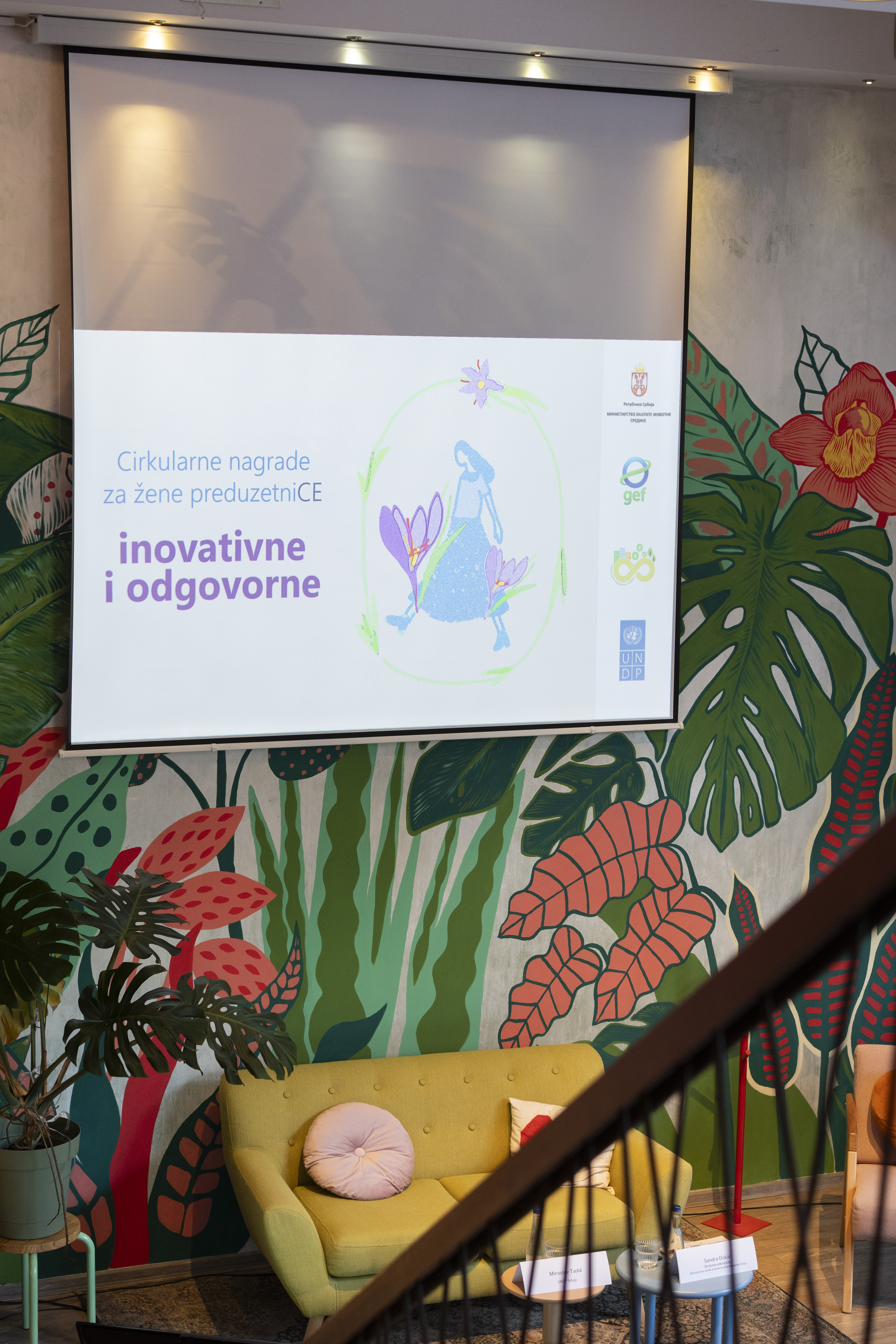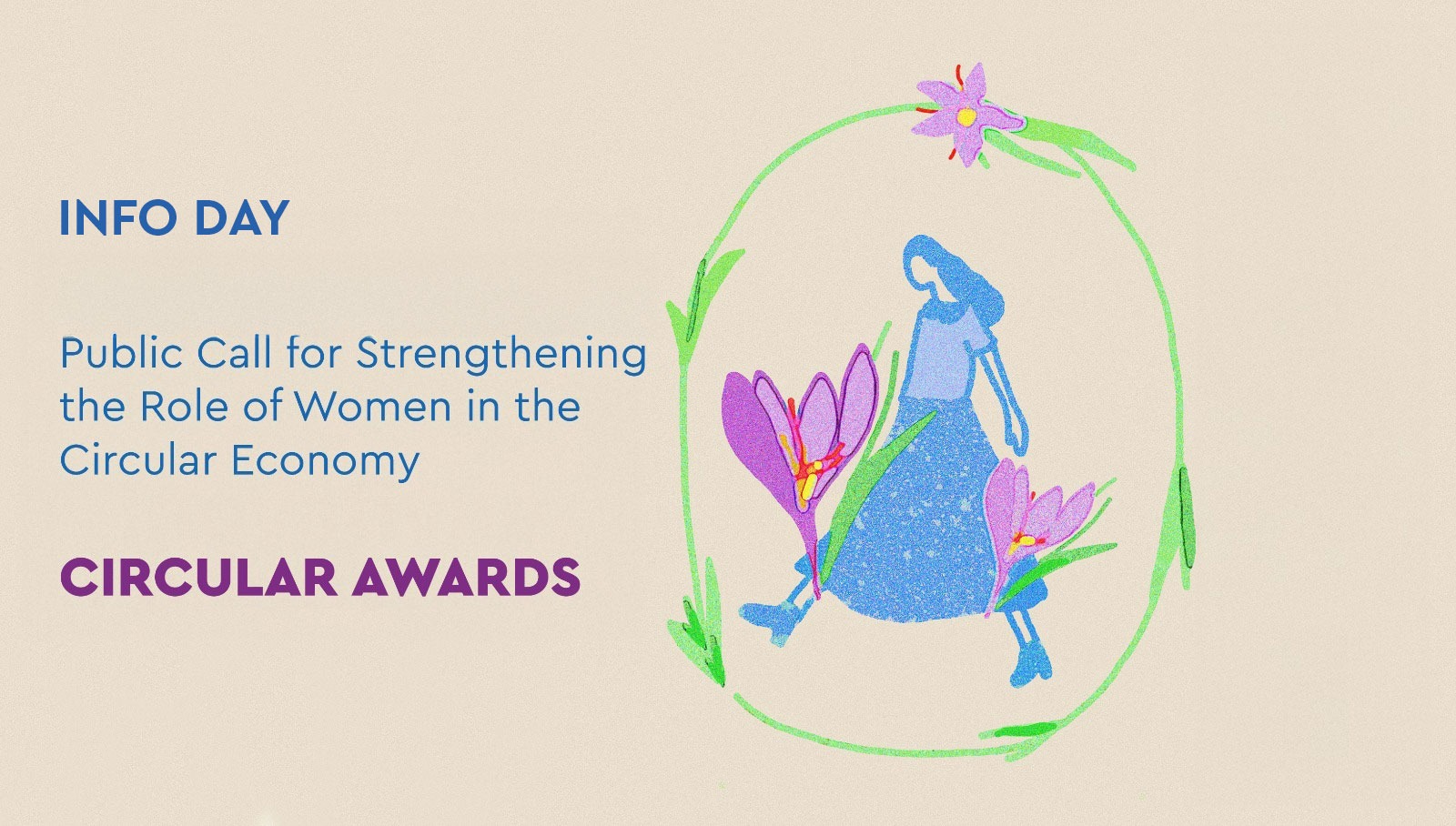As part of the European Green Week 2025, the Ministry of Environmental Protection, the Delegation of the European Union in Serbia, and the United Nations Development Programme (UNDP) marked World Environment Day today at the European House, focusing on the fight against plastic pollution.
The event was opened by Plamena Halačeva, Deputy Head of the Delegation of the European Union in Serbia. She emphasized that microplastic pollution, found today in food, water, and air, poses a serious threat to ecosystems and the well-being of people worldwide.
“The European Union plays a key role in global negotiations for a new international agreement to end plastic pollution. We advocate for a comprehensive approach that encompasses the entire lifecycle of plastics – from production and design to disposal, with a special focus on carefully monitoring production levels, not just waste management”, stated Halačeva.
She added that the EU is Serbia’s largest donor in the environmental sector, with more than 600 million euros in grants in previous years, attracting an additional 300 million euros through co-financing.
“Through the Western Balkans Investment Framework and initiatives like the EU for Green Agenda in Serbia, the European Union assists the public and private sectors in reducing emissions, improving circularity, and protecting biodiversity. These initiatives bring tangible benefits to communities in Serbia – cleaner air, safer water, and green jobs”, explained the Deputy Head of the Delegation of the European Union in Serbia.
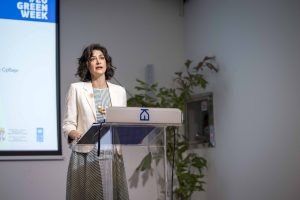
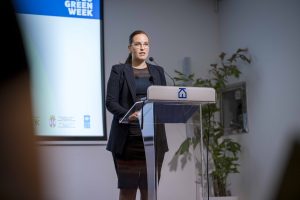
The Minister of Environmental Protection, Sara Pavkov, highlighted Serbia’s commitment to creating regulatory prerequisites for reducing plastic waste and implementing projects for managing all types of waste according to modern global standards.
“I am proud of the fact that Serbia is the first country in the region to have developed a Roadmap for Circular Economy for the period 2022 – 2024, aligned with European directives, aiming for a transition to a circular economic model by 2030. A new program for circular economy for the period 2025-2030 is also being prepared, soon to be open for public discussion. In parallel with regulatory improvements, we are implementing capital projects for building regional waste management centers across Serbia, where waste will be treated according to European standards,” added Minister Pavkov.
During the event, representatives from relevant institutions, international organizations, the private sector, and environmental protection experts discussed the impact of plastics and microplastics on human health and ecosystems, as well as sustainable alternatives and the significance of applying circular economy principles as a solution for reducing plastic and other types of waste.
Jakup Beriš, the UNDP Resident Representative in Serbia, noted that microplastics are also found in everyday products—salt, sugar, honey, bottled water, and milk—and that this waste accumulates over time in nature, worsening the already acute environmental crisis. He emphasized that supporting innovations in the field of circular economy is crucial for reducing plastic and other waste.
“With support from international partners and the relevant ministry, UNDP has helped more than 80 circular innovations come to life in Serbia over the past three years. Many are born from collaborations between science and industry, contributing to the conservation of natural resources, waste reduction, pollution mitigation, and the creation of new jobs, thereby fostering economic growth,” explained Beriš.
He cited examples such as insect larvae farms that consume plastic, removing all harmful substances, and companies experimenting with the reuse of plastic and organic waste to produce valuable biotechnological materials or create insulating materials for buildings from plastic textile waste.
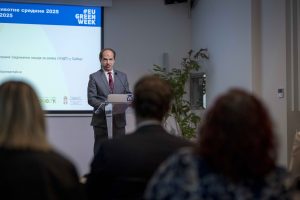
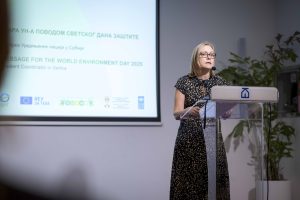
“Plastic pollution is no longer just what we see, but what we breathe, drink, and eat. Tackling this problem requires bold, coordinated actions at all levels. The United Nations is committed to supporting Serbia in building cleaner, more resilient communities—through better policies, stronger institutions, and on-ground innovations,” stated Matilde Mort, UN Resident Coordinator in Serbia.
Special guest from Denmark, Ambassador of the European Climate Pact Gitemeri Johansen, emphasized the important role each individual plays in combating plastic pollution. “When we start seeing ourselves as a tree in a vast forest, rather than as an island—our behavior changes,” Johansen remarked.
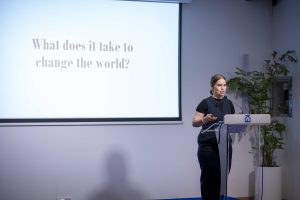
One of the panel discussions during the conference was dedicated to showcasing successful innovations aimed at reducing plastic waste. The discussion was moderated by Ana Mitić-Radulović, Analyst for Circular Economy at UNDP Serbia, and featured Dr.Larisa Ilijin from the Institute for Biological Research “Siniša Stanković”, National Institute of the Republic of Serbia, Ms. Linda Stojković from E-Reciklaža 2010 d.o.o, and Ms. Jelena Janković from ArTech Engineering. The audience particularly appreciated the opportunity to see sample innovations live during the session.
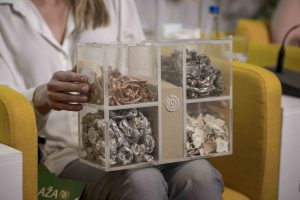
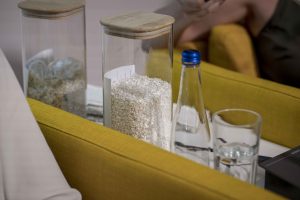
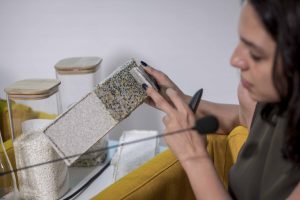
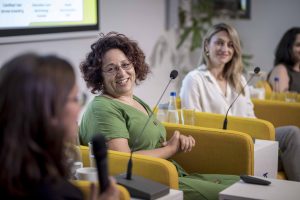
Alongside the main program, a creative workshop was held for lower grade elementary school students on the lifecycle of plastics in nature and alternatives to its use. Additionally, winning solutions for reducing plastic waste and saving resources were presented by high school teams from Pirot and Smederevska Palanka within the STE(A)M challenge—transforming plastic bottles into materials for 3D printing and a smart bin for proper waste disposal.

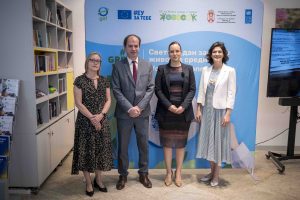
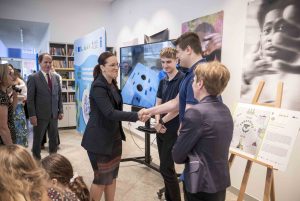
Photo by: Momira Marković
